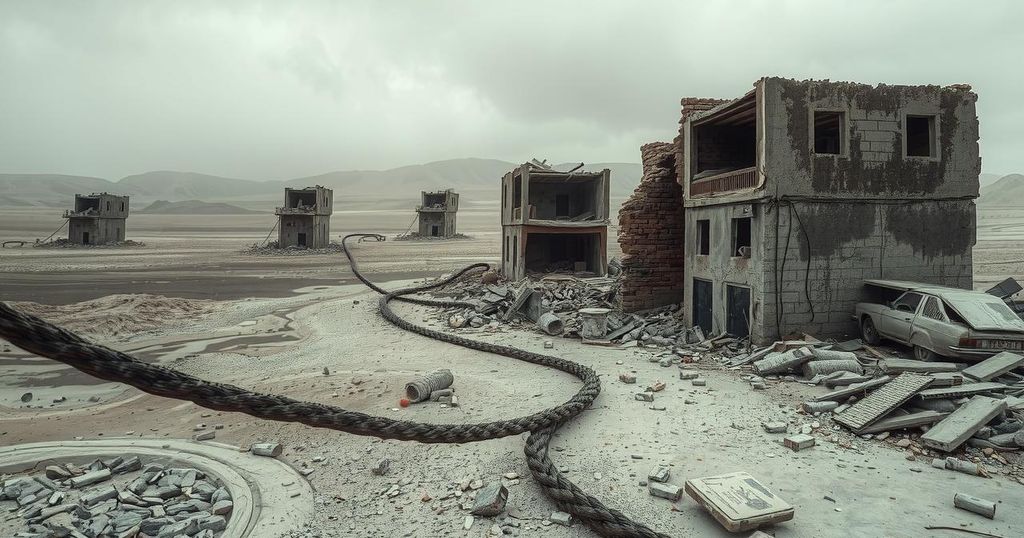Recent developments indicate a possible turning point in Sudan’s civil war as General Abdel Fattah al-Burhan’s forces capture the presidential palace in Khartoum from the Rapid Support Forces. Despite military gains, the RSF retains substantial territory, highlighting continued conflict and humanitarian distress in both Sudan and South Sudan, amid declining international aid.
The ongoing civil war in Sudan has reached a potential turning point as the Sudanese army, under General Abdel Fattah al-Burhan, successfully seized the presidential palace in the capital, Khartoum, from the Rapid Support Forces (RSF) led by General Mohamed Hamdan Dagalo, known as Hemedti. After being ousted by Hemedti’s forces in April 2023, Burhan’s army has regained key positions, including the central bank of Sudan, amidst ongoing violence and shelling reported by residents.
As the Sudanese military leverages recent advantages, including supply support from Iranian and Turkish drones, the situation remains precarious. The RSF has reportedly suffered logistical challenges and still retains control over significant parts of Sudan, particularly in the west and south. Both warring factions have been accused of committing atrocities, especially against non-Arab communities in Darfur, leading to international condemnation and sanctions against Hemedti’s faction.
The RSF is alleged to receive covert assistance from the United Arab Emirates, amidst denials from the UAE government, while the Sudanese army has garnered support from Egypt, Turkey, and Iran. Previous attempts at mediation and ceasefires have consistently proved unsuccessful, resulting in a persistent stalemate with neither side showing a clear path to victory. This division effectively splits Sudan between the army in the east and RSF in the west.
The conflict’s fallout is impacting neighboring South Sudan, where instability is rising due to failures in a power-sharing agreement and oil export challenges. The United Nations has warned of a potential return to civil war in South Sudan as the humanitarian crisis unfolds in both nations, exacerbated by international neglect and insufficient funding for humanitarian efforts. The UN’s appeal for Sudan has reportedly only achieved a 6.63% response rate, resulting in dire consequences for the affected populations as international assistance dwindles.
As the crisis deepens, the aftermath of cuts to U.S. foreign aid is being felt acutely. Analysts emphasize the devastating impact these reductions will have on ongoing humanitarian efforts in Sudan, already facing the world’s largest humanitarian emergency. Experts highlight that crucial funding has been diverted due to shifting international priorities, leaving millions vulnerable in the war-torn region.
In summary, the civil war in Sudan appears poised for a critical shift as the Sudanese army gains ground against the Rapid Support Forces. However, the conflict remains unresolved, with significant humanitarian needs heightened by international neglect. The escalating instability in both Sudan and South Sudan further complicates the situation, as foreign aid support declines amidst political changes in the U.S. Key stakeholders must address these concerns to alleviate the suffering of affected populations.
Original Source: www.washingtonpost.com




